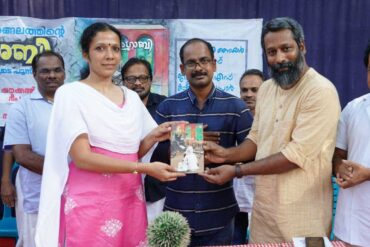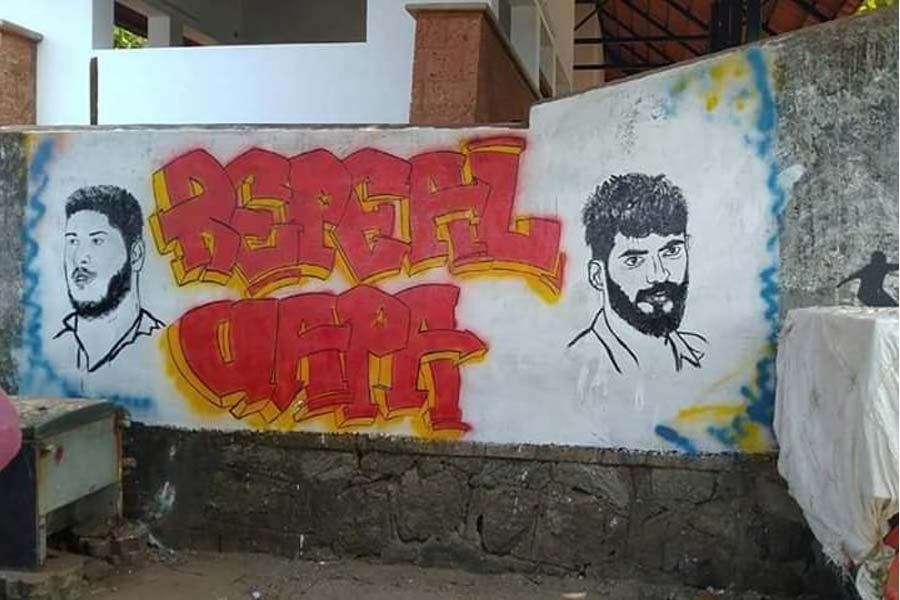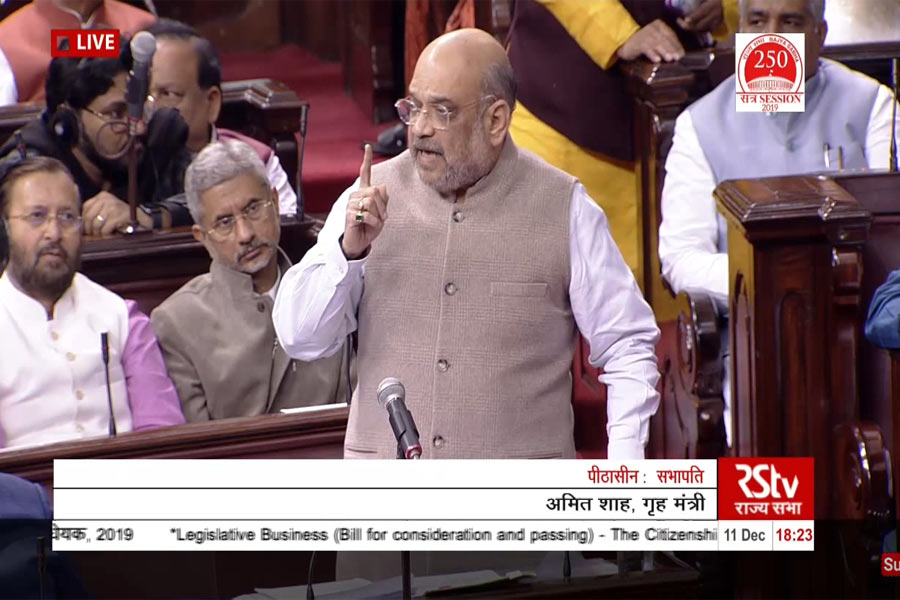When the Kerala police picked up the two youngsters, Alan Shuhaib and Thwaha Fazal, from Pantheerankavu on the outskirts of Kozhikode city on the evening of November 1, 2019, they justified the arrest on the grounds that the duo had Maoist connections. The arrests were made utilizing the draconian provisions in the UAPA and, as a result, both the students have been lodged in high security prisons as undertials for the past four months with no prospects for a bail in the immediate future.
The arrests did evoke some public outcry at the time, especially since both were actively associated with the Communist Party of India (Marxist)—which controls the home portfolio in the State—and their families known to be long-time CPI (M) sympathisers. The CPI (M) General Secretary Sitaram Yechuri, former general secretary Prakash Karat and politburo member M A Baby were among those who demanded their release arguing that it was illegal to charge them under UAPA, that there was no cognizable offences against them, and that their alleged Maoist sympathies cannot be valid ground for an arrest. But the Chief Minister, Pinarayi Vijayan, defended his police force, openly declaring that these two youths were indeed Maoists. The chief minister asserted that the police had acted based on very strong grounds and there was no way the government could intervene until the matters came before the UAPA review committee, which, however, could not consider the matter as the case was already taken over by the central agency, National Investigation Agency (NIA), for its own probe. The CPI (M) state secretariat sought to wriggle out of the situation arguing that since the NIA had taken over the case, the ball was in the Centre’s court, and the State government had nothing more to do.
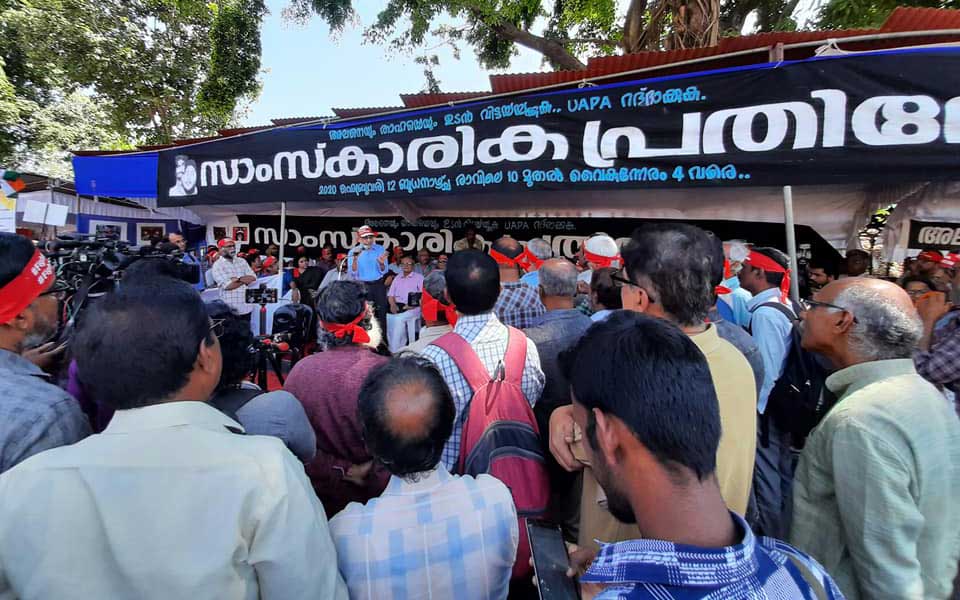
Four months later, things look a lot more complicated: both students are still in jail, now lodged in the high security prison in Thrissur. Both the CPI (M) and the Left Democratic Front (LDF) government are finding themselves trapped in a deep political quagmire. The most telling evidence of the brewing crisis within the LDF and the CPI (M) came when the Chief Minister made a somersault on the matter within 24 hours of the Opposition bringing an urgent motion in the State Assembly, forcefully highlighting the serious violations of human rights involved in the case. The Chief Minister, who had flatly refused to take any action as demanded by the Opposition in the Assembly, had to take up the matter with the Union Home Minister Amit Shah, as the Opposition had demanded in the house. The State Government has now requested the Centre to commit the case back to its own agencies, as it felt the charges against the youngsters were not serious enough to warrant an NIA probe.
What forced the government to reconsider its earlier stand? There are political as well as administrative reasons behind it. In fact, the party and its government are facing multiple headaches: First, there is a widespread awareness among the public that the case has little substance and the arrests were a travesty of justice and rule of law. The police have not been able to come up with any credible evidence to prove the duo’s alleged connections with the banned political outfits despite continuous questioning during their long periods of incarceration. A recent statement from the state Director General of Police (DGP), Loknath Behera, that the NIA was not sure how to proceed on the case, was an indirect admission that the Kerala police had acted in haste.
The highhandedness on the part of the Kerala police, which slapped UAPA charges without any serious effort to gather evidence to prove their case, has put the government in a soup. The CPI (M) State Secretariat initially claimed that since the NIA took over the case without any consultations with the State government, the state’s hands were practically tied. This was nothing but a shameless effort to shirk its own responsibility.
The specious claim was shredded to pieces by Dr M K Muneer, the Muslim League MLA who represents the locality where the arrests were made, while speaking on the motion he tabled in the Assembly: “How can you shirk responsibility when it was the state police who had slapped the case under UAPA and hence opened the doors for the NIA to take it over? Why do you refuse to take steps for remedial measures when there is a provision in the NIA Act, which provides for recommitting a case back to the state police, if both central and state governments agreed to it?”
The Chief Minister was visibly angry while responding to it. “Are you suggesting I should go and plead with [Home Minister] Amit Shah?” he asked. The Opposition Leader Ramesh Chennithala responded in kind, asking why he should be so unwilling to plead with the Home Minister of India on an issue like this even as he was ready to plead with the Governor Arif Muhammad Khan, for a routine matter like reading the Statement of Policy in the State Assembly.
Rhetoric aside, the case is now entering serious realms of public policy. How far could the state government claim the benefit of doubt when it comes to arbitrary police actions that violate the fundamental rights of citizens, including their human rights? Eventually, the Chief Minister retracted his steps, writing to Union Home Minister Amit Shah arguing the case did not merit NIA inquiry.
This raises serious questions as to why did the state police act in haste, slapping charges against the youth under UAPA even as they had very flimsy evidence to prove their case? The only proof they could muster were a few pamphlets, which incidentally included the CPI (M) party programme, apart from some magazines and books, in their possession. Some senior CPI (M) and DYFI leaders had sought to defend the police action arguing how one of the youths had raised Maoist slogans as they were brought to their homes for search, after midnight on the day they were arrested. But the families have denied these allegations.
In fact, both the students, as they were brought before the court, had emphatically questioned the Chief Minister’s claim that they were Maoists. They said they were part of the CPI (M) and had worked for the party for many years and challenged Pinarayi Vijayan to produce any evidence to prove his allegation. The Chief Minister and his police department have failed to do so.
The arrest of the two boys and the subsequent developments has placed an excellent opportunity before the Opposition and they have made full use of it. In fact, the United Democratic Front (UDF) has been in disarray over the issue of united protests (with the LDF) in the state over the Citizenship Amendment Act (CAA) and the proposed National Register for Citizens (NRC). The differences between the Kerala Pradesh Congress Committee (KPCC) President Mullappally Ramachandran and Leader of Opposition Ramesh Chennithala came into the open, while the CPI (M) and the LDF took the lead with their highly successful ‘human wall’ that received public support even from the Opposition ranks.
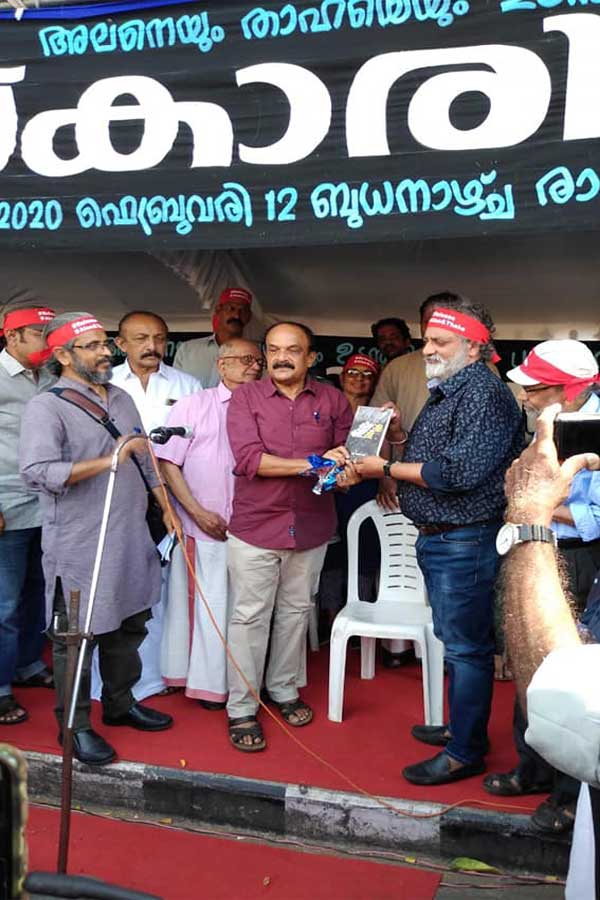
However, with their high profile visit to the houses of the youth in Calicut, Dr Muneer and Chennithala turned the tables on the Chief Minister and helped swing the political focus back to the cynical misuse of political power by the CPI (M) to browbeat and suppress those critical of them. Within the Left circles, a silent campaign is now on that what really resulted in the arrest of these youth was not their Maoist connections, but their criticism of powers within the party with substantial political and financial clout.
It is no secret that a majority of the members of the CPI (M) in the locality are firmly opposed to the government action even as they openly express solidarity to the families of the youth. The district committee of the party is also worried about the fallouts and their concerns were expressed when P Mohanan, district secretary, asserted that both of them were still members of the CPI (M) and the party had not been able to ascertain their Maoist connections. If their incarceration continues for long, it is most likely that the CPI (M) would face an internal rebellion, especially in the industrial belt of Kallai-Cheruvannur-Feroke, where the Communist party had a long history with veterans like P Krishna Pillai building up the party’s first units in Malabar in the mid-thirties.
Such a revolt would be disastrous for the CPI (M). In the old Malabar district, the Communist party’s first state unit was set up in a secret meeting held at Kallai in 1937, with veterans like E M S Namboodirippad, P Krishna Pillai, N C Sekhar and K Damodaran attending the meeting, also attended by S V Ghate, member of the central committee. The party became a powerful presence once it formed its first state committee at a secret conference held at the village of Pinarayi in Kannur, two years later.
So, the arrest of these youngsters under a draconian law the party has fought tooth and nail, is a matter pregnant with serious repercussions. It is an act of defiance against the party’s long held traditions and convictions by a chief minister, who himself hails from one of the original homes of the party in its early days.
In Kozhikode, the party had a few such bastions of historical significance. The first among these was Onchiyam, which had seen nine comrades fall to bullets in a peasants revolt. Now Onchiyam has bid goodbye to CPI (M), with most cadres including the veterans opting for the rival Revolutionary Marxist Party of India (RMPI) in the aftermath of the brutal hacking of renegade Marxist T P Chandrasekharan by CPI (M) cadres. The next to fall might be the working class terrain of Kallai-Cheruvannur-Feroke where many party members and supporters now feel deeply restive about the way the powerful neo-rich appears to hold sway on the party’s establishment, throwing to winds its old camaraderie and revolutionary principles.

